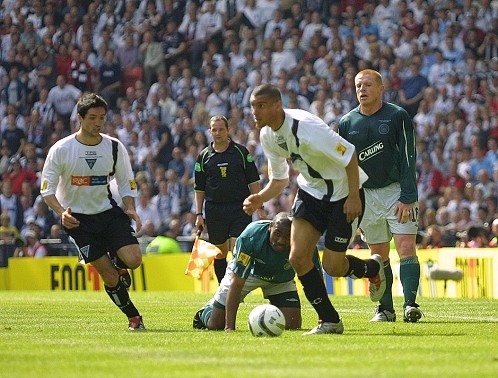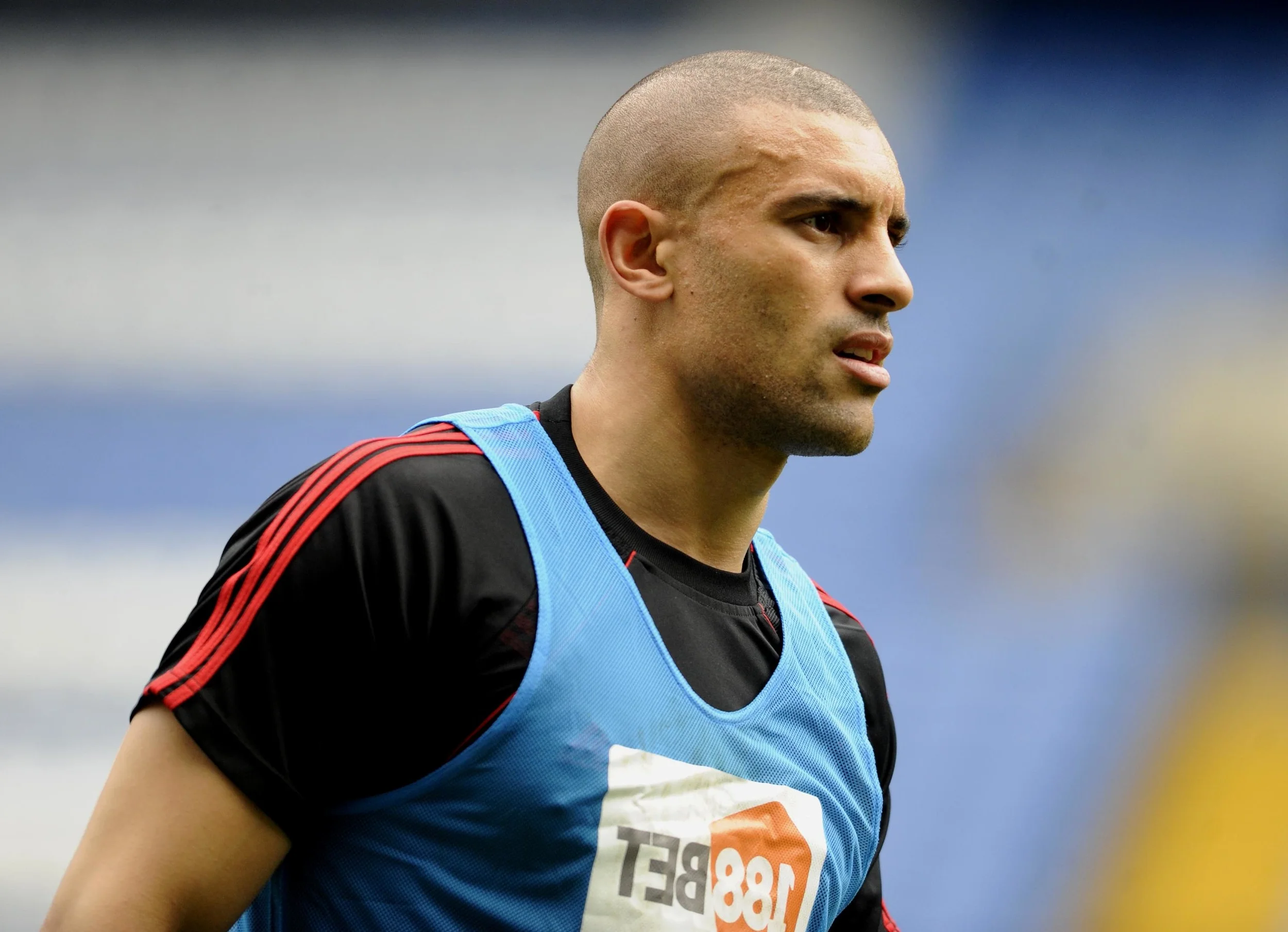
Potentia Football
We deal in providing an excellent level of service to footballers who realise that their physical fitness is the most important factor in their career.
Football players have a short career, so every facet, from fitness to lifestyle, should be handled with care and attention to detail.
At Potentia, we understand the level of strength, speed and cardiovascular fitness required which will determine what standard players can regularly compete at.
Thus, we have devised a training system to embed the correct techniques and physical attributes that will improve and maintain player’s speed and fitness throughout a season and into what we expect to be a long career.
With so many players, it is becoming more tough in the off-season to get a club and stay employed in the game. This is the time where Potentia will aid players, signed or not, to get to a level of fitness where they can compete, standing out to win a contract or a move to a bigger club.
Providing professional, reliable and science based approaches to training is of utmost importance to us at Potentia. In a fast paced world, many people want a quick route to fitness, but true excellence is a lifetime commitment and doesn’t happen overnight.
Affording no shortcuts, players will train hard, following a structured, individualised plan to achieve their goals and improve the longevity of their career.
Understanding a player's needs and goals is the key to success. We focus on safe and efficient training methods to deliver results in a realistic timeframe, while taking into account the stresses this chosen line of work imparts on all areas of life.
Consistency and a progressive training stimulus are what creates success. Potentia Football is where you will reach your career goals and beyond.






Meet Richie
As a player
Richie was a professional football player for 10 years, beginning his professional career at Shamrock Rovers.
Played predominantly as a left back and also at centre back.
Bought by Scottish Premier League team Dunfermline Athletic in 2003, Richie played in their most successful season in 40 years. The team reached the Scottish Cup Final against a Celtic team with Henrick Larsson, in his final game for Celtic. This secured European football for the club. The following season Richie was sold on to Aberdeen in 2004/2005.
At Aberdeen, Richie played in their most successful period since Alex Ferguson was Manager, where he played in the UEFA Cup against Atletico Madrid, boasting a galaxy of stars such as Sergio Aguero and Diego Forlan.
Richie was capped for the Rep. of Ireland at U21 level while also scoring on his debut for the senior B team against Scotland.
As a coach
Having left professional football due to injury, Richie focused his attention on a path that would eventually allow him to help other young players in their journeys and to help them to better prevent career ending injuries.
Richie gives footballers the highest level of service. With 10 years in professional clubs, 8 years as a personal trainer, a Master’s degree in Strength & Conditioning and a UEFA B license in football coaching, players are in very capable hands to reach their full potential.
Qualifications
Masters Degree in Strength and Conditioning
UKSCA Strength & Conditioning Coach
Level 3 personal trainer
Poliquin Level 2 strength coach
UEFA B Football Coach

Philosophy
For most professional footballers, minutes on the pitch are what matters.
This is the driving force for success as an individual and as a team. As such, my focus is to help players achieve as much game time as possible over their career.
Individual player-centric training models can be hard to find in the world of football.
My service is dedicated to giving each player what they need to become the most valuable commodity they can be. Clubs, agents and managers wage war in a bid to find the best value for money out there. Therefore, the more attributes I can improve in a player, the more in demand he/she will be.
Football has so many pitfalls for young players trying to gain a foothold in the game, the same goes for seasoned pros. Helping players avoid career hindering factors is part of my service.
Injury and lack of fitness are controllable aspects of the game and they shape a player's career. Time and again, we see that technique is less important than match time, strength, speed and staying injury free - many players sign multiple contracts on the basis of their ability to play game after game.
The need for a robust body is ever-increasing in today's game. The speed and ferocity of football appears to be escalating each year and so the need for athleticism grows with these requirements.
It's important to consider what happens off the pitch too. Food, rest, S&C and personal time all contribute to performance levels on the football pitch.
Enabling players to bring all these factors together and producing well rounded athletes is what drives me to be the best coach I can be.
I'll see you on the pitch.

Richie's Journey
Born in Dublin in a working class area, with not-your-average Irish upbringing, being half Nigerian, my circumstances and experiences were different to many of my peers.
I had many negative experiences, as many young men do, but I believe they ignited a fire in me and forged my will to succeed.
I tested many sports as a youngster, from boxing to Gaelic football. However I settled with football, the English kind, which wasn’t too popular in our Irish school system.
This was the sport I felt I was physically and mentally suited to. Football gave me the feeling of a level playing field with my peers and the rest of society.
It didn’t matter how old you were, how much money you had or what reputation you had on the street. On the football pitch, you were only worth the performance you produced then and there.
Luckily for me, my grandfather had a keen interest in football, having previously played for Belvedere Boys, one of Dublin’s most famous clubs.
Each Year I progressed well, constantly being scouted by another team in a better division until I finally played at the top of the Dublin Schoolboy’s league where scouts, in their long trench coats, were huddled together to try to spot the next big Irish star.
At 14 I was selected to trial at Wolves, and performed so well, they invited me back.
Time after time, on my school holidays, I would travel to England alone, witnessing the speed, intensity and attitude of all these young English pro players. They made me feel like I was not at their level, but deep down I knew one day I could be.
I decided to go on trial for a different club instead, and we actually played Wolves. I had one of the worst games ever, up against a good friend of mine. After that game neither club wanted me, I had blown my one big chance to deliver a mighty performance.
Was it complacency or arrogance, because both clubs had shown interest intially, or was it just a bad day, I will never know.
I returned to Ireland heart broken. My Boys team disintegrated and by 16 I had no club and was considering playing for my local team with some friends. Then, like a torch in the darkness, a coach from Belvedere, Peadhar Beehan, came to my door with an ultimatum. I could feel sorry for myself and continue my spiral out of control, or I could be a professional footballer.
I chose the latter, “I’ll see you Tuesday night at 7, don’t be late”, were the words that started my rise to a professional career.
An old principle got me a job as an apprentice electrician and so my work life took off at the same time. From Belvedere I was brought to Shamrock Rovers by Jimmy Jackson and within 2 years I was in the senior team at 19 years old.
During the day I worked as an electrician but in the evenings, I played in European games, Cup finals and fought for a top of the league place.
Out of the blue, I was being bought by Dunfermline Athletic in the Scottish Premier League, where I would play against my heroes who I had been watching on tv the season before.
A huge factor in my excellent performances, resulting in my moves, was the support and, encouragement and integration shown to me by the older players at all the clubs I’ve played for.
Social acceptance is a factor neglected by many. It allowed the culmination of my skill, attitude, understanding and emotion, to not only improve myself but improve the team.
Without this level of support, I do not know if I would have progressed as quickly.
I was then sold on to Aberdeen where, again, a hugely successful time for the club followed. We had a great squad, fantastic coaching staff and a huge fan base in the north of Scotland.
While playing for Aberdeen, I suffered my most significant life experience: I tore my hamstring from the bone.
As a young man, at 25 years old, I had endured an emotionally draining relationship break up with the mother of my son, I was just coming back from a broken shoulder AC joint and felt that my career at this club seemed to be cursed. Repetitive re-occurrences followed, finally, the end of my contract came and went without a renewal.
I had hit rock bottom as a footballer. I had no deal, no money, no club, no family structure, no support structure and I had no confidence in the one thing that I could always rely on, my body.
I club hopped for a couple of years, arriving more and more de-conditioned after each subsequent injury as I was not following a training plan in between clubs or end of season. I was just jogging around on the streets trying to replicate the runs I would do in my club's pre-season.
Eventually this lack of conditioning caught up with me and I had to retire due to lower back problems and recurring hamstring tears.
I travelled to London where an old football colleague allowed me to stay with him, but realising I needed a source of income, I enrolled on a PT course.
An office job or going back to life as an electrician wasn’t going to be right for me. So I set about finding a reason why my body failed me and why I could not regain full fitness.
Working as a personal trainer for a prestigious gym chain, I became the PT manager and found a very rewarding line of work. No matter what though, football was always at the heart of my learning and future decision making.
I enrolled in my UEFA football coaching licenses and worked up to the B license, with only the A to go. Simultaneously embarking on a Master’s degree in S&C at St. Mary’s University, becoming a well-rounded coach who has many tools to choose from, became my ultimate aim.
With the knowledge acquired, I hope that I can prevent injury to players of all ages, improve performance levels of every player I come into contact with and ultimately set examples which will give players a high standard in everything they do in life, even if it is not in football, giving them the tools to succeed on their own life journey.

